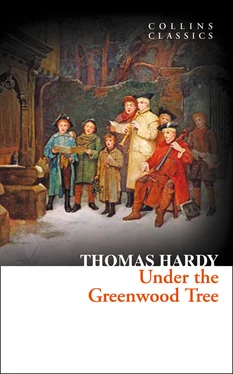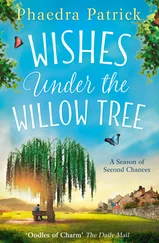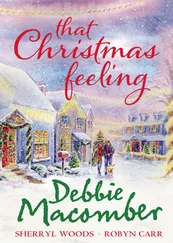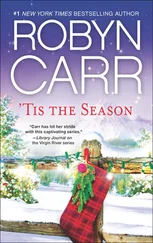Apart from anything else, Hardy had an eye for the tragedy of life. He was a humanist, who cared about the underdog and expressed this by dealing with those who were more privileged in his prose. His own life was not entirely filled with happiness, as he became estranged from his first wife and was then deeply affected by her death. Many of his female characters have a dangerous beauty to them, suggesting that Hardy’s view of women was perhaps coloured by his own experience and that he felt men fall for the charm and allure of women, but end up beguiled and unhappy as the result of their infatuation.
PART THE FIRST
To dwellers in a wood almost every species of tree has its voice as well as its feature. At the passing of the breeze the fir-trees sob and moan no less distinctly than they rock; the holly whistles as it battles with itself; the ash hisses amid its quiverings; the beech rustles while its flat boughs rise and fall. And winter, which modifies the note of such trees as shed their leaves, does not destroy its individuality.
On a cold and starry Christmas-eve within living memory a man was passing up a lane towards Mellstock Cross in the darkness of a plantation that whispered thus distinctively to his intelligence. All the evidences of his nature were those afforded by the spirit of his footsteps, which succeeded each other lightly and quickly, and by the liveliness of his voice as he sang in a rural cadence:
“With the rose and the lily
And the daffodowndilly,
The lads and the lasses a-sheep-shearing go.”
The lonely lane he was following connected one of the hamlets of Mellstock parish with Upper Mellstock and Lewgate, and to his eyes, casually glancing upward, the silver and black-stemmed birches with their characteristic tufts, the pale grey boughs of beech, the dark-creviced elm, all appeared now as black and flat outlines upon the sky, wherein the white stars twinkled so vehemently that their flickering seemed like the flapping of wings. Within the woody pass, at a level anything lower than the horizon, all was dark as the grave. The copse-wood forming the sides of the bower interlaced its branches so densely, even at this season of the year, that the draught from the north-east flew along the channel with scarcely an interruption from lateral breezes.
After passing the plantation and reaching Mellstock Cross the white surface of the lane revealed itself between the dark hedgerows like a ribbon jagged at the edges; the irregularity being caused by temporary accumulations of leaves extending from the ditch on either side.
The song (many times interrupted by flitting thoughts which took the place of several bars, and resumed at a point it would have reached had its continuity been unbroken) now received a more palpable check, in the shape of “Ho-i-i-i-i-i!” from the crossing lane to Lower Mellstock, on the right of the singer who had just emerged from the trees.
“Ho-i-i-i-i-i!” he answered, stopping and looking round, though with no idea of seeing anything more than imagination pictured.
“Is that thee, young Dick Dewy?” came from the darkness.
“Ay, sure, Michael Mail.”
“Then why not stop for fellow-craters—going to thy own father’s house too, as we be, and knowen us so well?”
Dick Dewy faced about and continued his tune in an under-whistle, implying that the business of his mouth could not be checked at a moment’s notice by the placid emotion of friendship.
Having come more into the open he could now be seen rising against the sky, his profile appearing on the light background like the portrait of a gentleman in black cardboard. It assumed the form of a low-crowned hat, an ordinary-shaped nose, an ordinary chin, an ordinary neck, and ordinary shoulders. What he consisted of further down was invisible from lack of sky low enough to picture him on.
Shuffling, halting, irregular footsteps of various kinds were now heard coming up the hill, and presently there emerged from the shade severally five men of different ages and gaits, all of them working villagers of the parish of Mellstock. They, too, had lost their rotundity with the daylight, and advanced against the sky in flat outlines, which suggested some processional design on Greek or Etruscan pottery. They represented the chief portion of Mellstock parish choir.
The first was a bowed and bent man, who carried a fiddle under his arm, and walked as if engaged in studying some subject connected with the surface of the road. He was Michael Mail, the man who had hallooed to Dick.
The next was Mr Robert Penny, boot- and shoemaker; a little man, who, though rather round-shouldered, walked as if that fact had not come to his own knowledge, moving on with his back very hollow and his face fixed on the north-east quarter of the heavens before him, so that his lower waistcoat-buttons came first, and then the remainder of his figure. His features were invisible; yet when he occasionally looked round, two faint moons of light gleamed for an instant from the precincts of his eyes, denoting that he wore spectacles of a circular form.
The third was Elias Spinks, who walked perpendicularly and dramatically. The fourth outline was Joseph Bowman’s, who had now no distinctive appearance beyond that of a human being. Finally came a weak lath-like form, trotting and stumbling along with one shoulder forward and his head inclined to the left, his arms dangling nervelessly in the wind as if they were empty sleeves. This was Thomas Leaf.
“Where be the boys?” said Dick to this somewhat indifferently-matched assembly.
The eldest of the group, Michael Mail, cleared his throat from a great depth.
“We told them to keep back at home for a time, thinken they wouldn’t be wanted yet awhile; and we could choose the tunes, and so on.”
“Father and grandfather William have expected ye a little sooner. I have just been for a run round by Ewelease Stile and Hollow Hill to warm my feet.”
“To be sure father did! To be sure ’a did expect us—to taste the little barrel beyond compare that he’s going to tap.”
“’Od rabbit it all! Never heard a word of it!” said Mr Penny, gleams of delight appearing upon his spectacle-glasses, Dick meanwhile singing parenthetically—
“The lads and the lasses a-sheep-shearing go.”
“Neighbours, there’s time enough to drink a sight of drink now afore bedtime!” said Mail.
“True, true—time enough to get as drunk as lords!” replied Bowman cheerfully.
This opinion being taken as convincing they all advanced between the varying hedges and the trees dotting them here and there, kicking their toes occasionally among the crumpled leaves. Soon appeared glimmering indications of the few cottages forming the small hamlet of Upper Mellstock for which they were bound, whilst the faint sound of church-bells ringing a Christmas peal could be heard floating over upon the breeze from the direction of Longpuddle and Weatherbury parishes on the other side of the hills. A little wicket admitted them to the garden, and they proceeded up the path to Dick’s house.
It was a long low cottage with a hipped roof of thatch, having dormer windows breaking up into the eaves, a chimney standing in the middle of the ridge and another at each end. The window-shutters were not yet closed, and the fire- and candle-light within radiated forth upon the thick bushes of box and laurestinus growing in clumps outside, and upon the bare boughs of several codlin-trees hanging about in various distorted shapes, the result of early training as espaliers combined with careless climbing into their boughs in later years. The walls of the dwelling were for the most part covered with creepers, though these were rather beaten back from the doorway—a feature which was worn and scratched by much passing in and out, giving it by day the appearance of an old keyhole. Light streamed through the cracks and joints of outbuildings a little way from the cottage, a sight which nourished a fancy that the purpose of the erection must be rather to veil bright attractions than to shelter unsightly necessaries. The noise of a beetle and wedges and the splintering of wood was periodically heard from this direction; and at some little distance further a steady regular munching and the occasional scurr of a rope betokened a stable, and horses feeding within it.
Читать дальше












